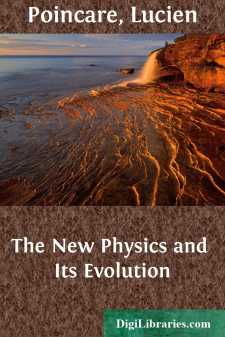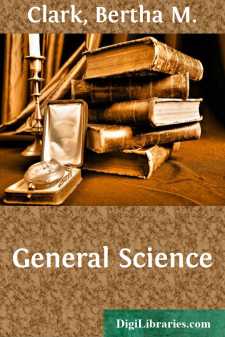Science
- Astronomy 18
- Biology 40
- Chemistry 13
- Electricity 1
- General 38
- History 6
- Light 1
- Paleontology 2
- Philosophy & Social Aspects 1
- Physics 3
- Relativity 2
- Study & Teaching 1
- Waves & Wave Mechanics 1
Science Books
Sort by:
by:
Justus Liebig
LETTER I My dear Sir, The influence which the science of chemistry exercises upon human industry, agriculture, and commerce; upon physiology, medicine, and other sciences, is now so interesting a topic of conversation everywhere, that it may be no unacceptable present to you if I trace in a few familiar letters some of the relations it bears to these various sciences, and exhibit for you its actual...
more...
by:
Henry P. Talbot
PART I INTRODUCTION SUBDIVISIONS OF ANALYTICAL CHEMISTRY A complete chemical analysis of a body of unknown composition involves the recognition of its component parts by the methods of !qualitative analysis!, and the determination of the proportions in which these components are present by the processes of !quantitative analysis!. A preliminary qualitative examination is generally indispensable, if...
more...
by:
Lucien Poincare
THE EVOLUTION OF PHYSICS The now numerous public which tries with some success to keep abreast of the movement in science, from seeing its mental habits every day upset, and from occasionally witnessing unexpected discoveries that produce a more lively sensation from their reaction on social life, is led to suppose that we live in a really exceptional epoch, scored by profound crises and illustrated by...
more...
In the year 1884 I was invited to give tuition by correspondence, in Biology. Although disposed at the time to ridicule the idea of imparting instruction in natural science by letter, I gladly accepted the opportunity thus afforded me of ascertaining for myself what could and could not be accomplished in that direction. Anyone familiar with the scope of biological enquiry, and the methods of biological...
more...
by:
Bertha M. Clark
CHAPTER I HEAT I. Value of Fire. Every day, uncontrolled fire wipes out human lives and destroys vast amounts of property; every day, fire, controlled and regulated in stove and furnace, cooks our food and warms our houses. Fire melts ore and allows of the forging of iron, as in the blacksmith's shop, and of the fashioning of innumerable objects serviceable to man. Heated boilers change water into...
more...
PREFACE In offering this book to teachers of elementary chemistry the authors lay no claim to any great originality. It has been their aim to prepare a text-book constructed along lines which have become recognized as best suited to an elementary treatment of the subject. At the same time they have made a consistent effort to make the text clear in outline, simple in style and language, conservatively...
more...







